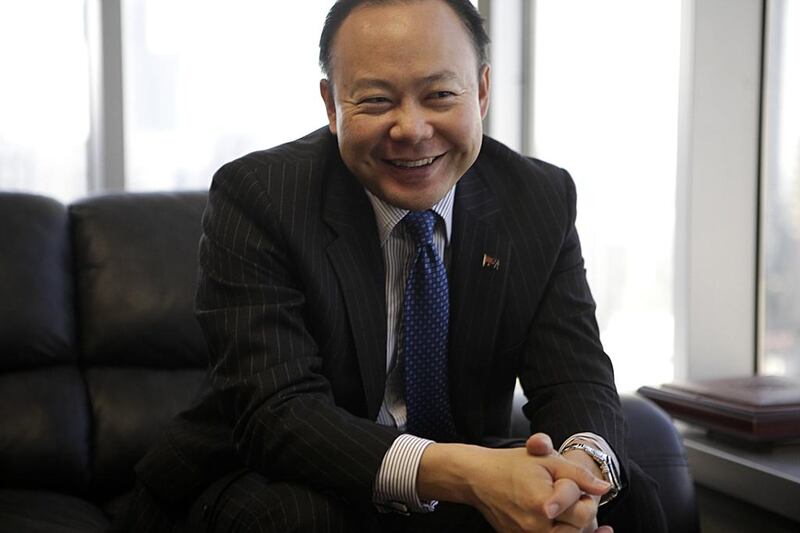ABU DHABI // After four years as Australia’s ambassador to the UAE, Pablo Kang still remembers the first time he drove from Abu Dhabi to Dubai.
“When I got to the Marina and saw skyscrapers, I thought we had reached the city centre. Then I remember driving another 30 minutes and thinking Dubai was very long.”
Mr Kang, 42, has served at Australian embassies in London, the Philippines and Vanuatu in the South Pacific. His time in the UAE – his longest diplomatic posting yet, and the most time he has spent in one country since university – ends on Monday.
The ambassador, who has a wife and two children, is sad to leave, but has enjoyed his time here. “In 2012, people were cautious that the economy was still in recovery mode after the financial crisis and I think in Dubai there were still question marks about whether it could recover.
“So clearly, from an economic perspective, the place has really boomed in the past four years and foreign policy-wise, the UAE has become more assertive in terms of how it handles regional issues.”
Mr Kang says his successor, Arthur Spyrou, has much to do – including building a school in Abu Dhabi and finalising a police training agreement between the countries.
“Australia and the UAE are strong members of the anti-Daesh coalition and it is an ongoing issue for us, especially focusing on Iraq and Syria. So that will require maintenance of close defence and intelligence links.”
A first Australian embassy is also expected to open in Qatar later this year, along with the establishment of a treaty on the transfer of prisoners between Australia and the UAE.
A new Australian curriculum school is also expected to open in Abu Dhabi, adding to the two in Sharjah and two universities in Dubai.
Energy is a main talking point with the UAE aiming to have four nuclear plants operational by 2020. The goal is to be able to provide enough energy to meet up to a quarter of electricity needs and save up to 12 million tonnes of greenhouse gas emissions a year.
And with Australia the largest holder of uranium reserves in the world, and the third-largest exporter, it was an easy decision by the UAE to ratify an agreement with Australia in 2014 for the export of hundreds of tonnes of uranium a year by the end of the decade.
“Clearly, with the UAE’s nuclear power programme, we are anticipating that our export profile will include uranium once the nuclear power plant come online,” Mr Kang said.
With 266 Etihad, Emirates, Qantas and Virgin Australia flights a week between both countries, he also expected both airlines to increase that number.
“There are now about 23,000 Australians in the UAE, which is our ninth-largest host of Australians overseas.
“There are 360 Australian companies registered here and 320,000 Australians visited the UAE in 2014, which is a 40 per cent increase on the previous year.”
Dr Mustafa Alani, head of security and terrorism at the Gulf Research Centre, said the relationship between both countries had grown significantly after the global partnership between Emirates and Qantas.
“You need a special security arrangement here because hundreds of thousands of people are travelling,” he said. “It had a huge impact on their relations.”
For Mr Kang, as he returns to Canberra to work on South Pacific relations at Australia’s ministry of foreign affairs, there is one abiding memory of his years in the UAE.
“What I’ll remember the most is that there is a very natural hospitality, it’s not a forced thing, Emiratis are very naturally hospitable and don’t expect anything in return. I’ll remember that very much.”
cmalek@thenational.ae






